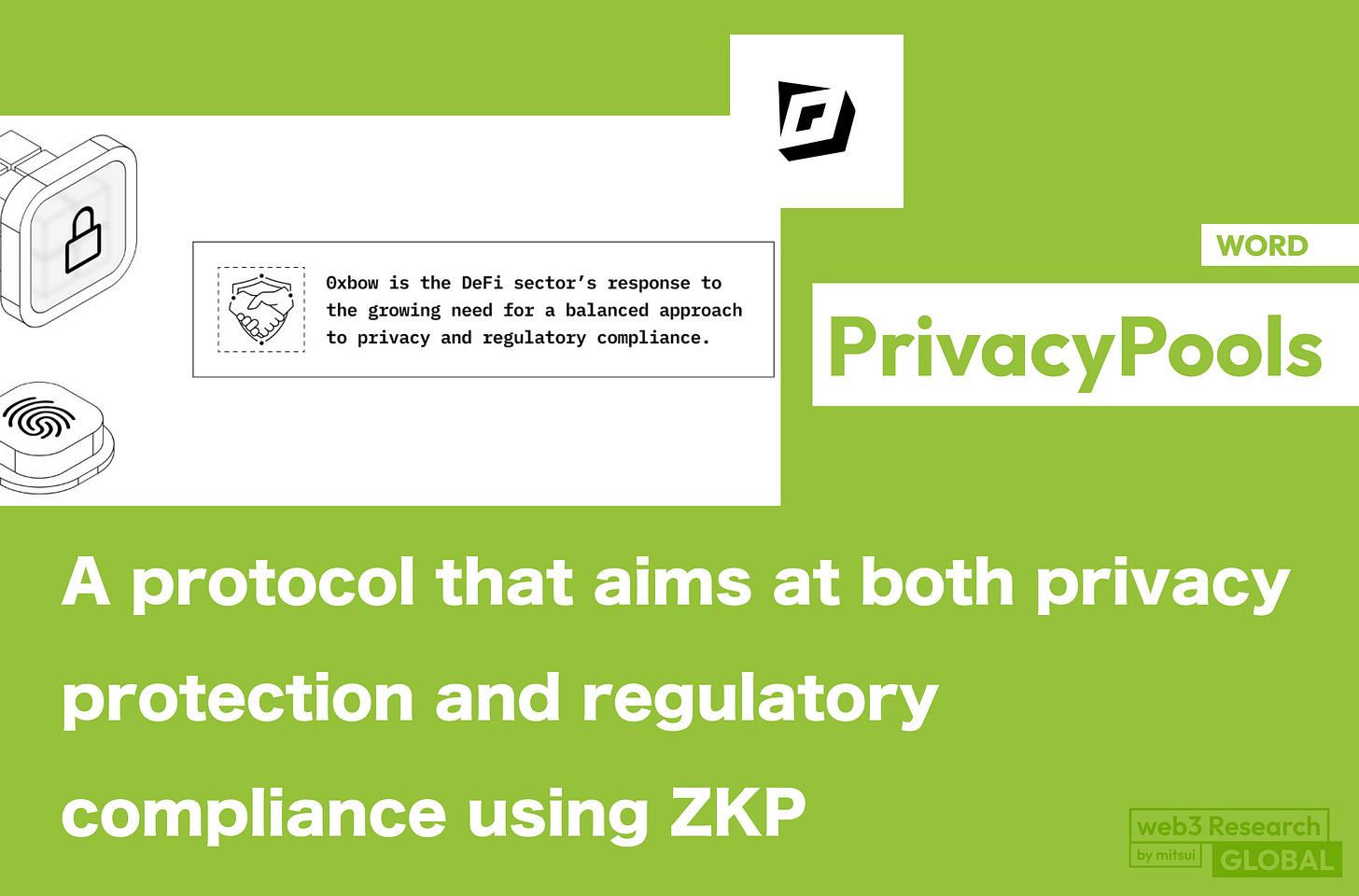【PrivacyPools】A protocol that aims at both privacy protection and regulatory compliance using ZKP / Idea based on papers by Vitalik and others / @0xbowio
Zero Knowledge Proof Protocol (ZKP) is an idea for balancing privacy and regulatory compliance.
Good morning.
Mitsui from web3 researcher.
Today we researched PrivacyPools.
🟦What are PrivacyPools?
⚙️ specific mechanisms
💬The privacy domain is maturing
🟦What are PrivacyPools?
On March 31, 2025, Ethereum developer team 0xbow (zerobow) announced the mainnet go-live of its new on-chain privacy tool, Privacy Pools.
"Privacy Pools" is a new protocolaimed at both privacy protection and regulatory compliance on the blockchain.
The original idea came from a white paper published in September 2023 by Ethereum co-founder Vitalik Buterin, Chainalysis principal researcher Jacob Illum, and scholars Matthias Nadler and Fabian Schär of the University of Basel, Switzerland.The name derives from a white paper published in September 2023 by Chainalysis Principal Investigators
In this paper, Blockchain Privacy and Regulatory Compliance: Towards a Practical Equilibrium, the concept of "Privacy Pools" to balance financial privacy and regulatory complianceThe paper presents the concept of "Privacy Pools" for reconciling financial privacy and regulatory compliance.In the paper, the authors state that "in many cases, privacy and regulatory compliance are perceived as incompatible," but "this is not always the case, as this protocol allows users to prove certain characteristics about the origin of their funds," suggesting that privacy and regulation may be compatible.The paper also states that "in many cases, privacy and regulatory compliance are compatible.
The core idea of "Privacy Pools" isa mechanismfor users to prove by zero-knowledge proof that their deposited funds are included in an "Association Set" consisting only of good funds.Association Set" with a zero-knowledge proof that the user's deposited funds are included in the "Association Set".






